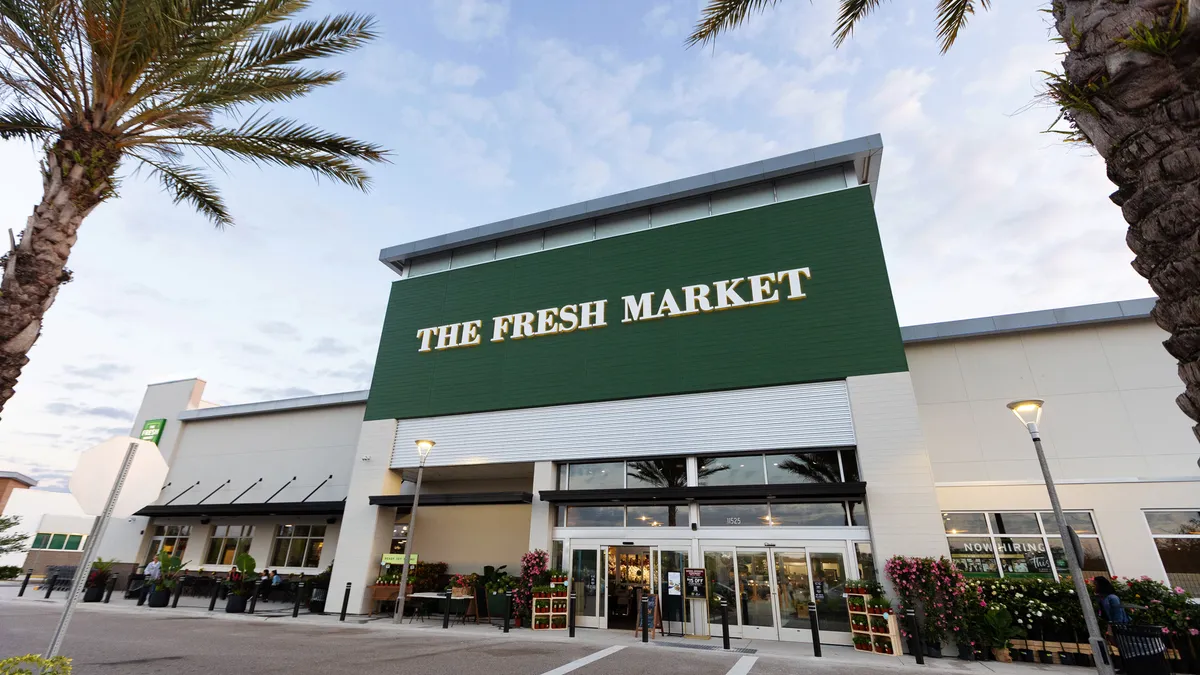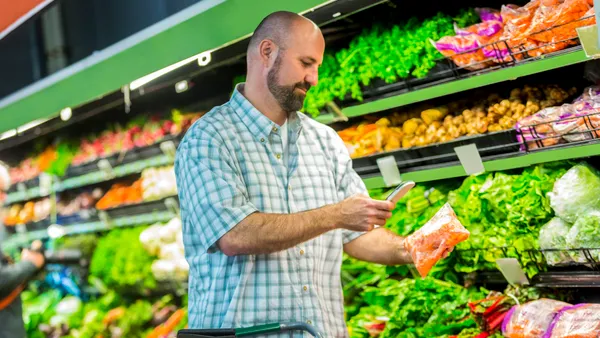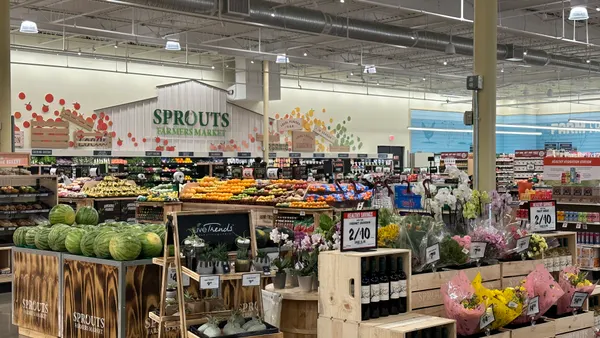Dive Brief:
- Speaking to reporters last week, President Donald Trump threatened to close the U.S.-Mexico border entirely, including to all trade. Trump also said there was a "very good likelihood" he would close the border this week if Mexico doesn't take action to stop immigrants from coming to the U.S.
- A full shutdown would impact a reported $137 billion worth of food imports to the U.S., especially fruits and vegetables. About 40% of imported fruit comes from Mexico and half of all imported vegetables, according to data from the United States Department of Agriculture.
- Steve Barnard, president and CEO of Mission Produce, told Reuters that Americans would run out of avocados in three weeks if imports from Mexico were stopped. "You couldn't pick a worse time of year because Mexico supplies virtually 100% of the avocados in the U.S. right now," he said.
Dive Insight:
From avocados and limes to dairy and tequila, a closed border could hurt food and beverage distribution across the U.S. Trade groups have expressed concern about this move since the U.S. is dependent on trade to the country for fruit, vegetables and alcohol. Even with just the threat of a closed border, product prices could rise and retailers might suffer.
United Fresh Produce Association wrote in a statement that a proposed border shutdown would significantly interrupt the ability to supply produce to the U.S. The organization said produce is already facing longer inspection times, since up to 750 Customs and Border Protection officers who process imports have been reassigned to assist U.S. Border Patrol with migrant crossings. Further action could increase costs to consumers, while causing millions in economic losses.
"Already, inspection delays are being felt from El Paso to San Diego costing farmers, truck drivers and companies of all sizes," United Fresh wrote. "In fact, the San Diego Association of Governments and California Department of Transportation have indicated that even an extra 15 minutes of wait time could generate as much as $1 billion in lost productivity and 134,000 lost in jobs annually."
Since food companies are already weathering price increases to help their bottom lines, a loss of Mexico imports and exports could be ruinous. The impact is already evident across the industry as the price of some avocados skyrocketed after Trump's threat. The price of Hass avocados from the Mexican city of Michoacan increased 34% on Tuesday — the largest single day jump since April 2009, according to Bloomberg. Avocados from Mexico make up about 75% to 80% of consumption in the U.S., according to the Haas Avocado Board. But it is not just avocados. Reuters reported that the majority of imported tomatoes, cucumbers, raspberries and blackberries come from Mexico, leaving a variety of fruits and vegetables in limbo with this potential shutdown up in the air.
The U.S. market would also struggle with the loss to its export market. Data from the Office of the U.S. Trade Representative shows that the U.S. shipped about $19 billion worth of agriculture products to Mexico in 2017, a massive market to just dissolve with a closed border. Mexico is U.S. dairy's largest export customer, buying $1.4 billion in 2018, according to the U.S. Dairy Export Council.
"Dairy exporters already are suffering from diminished access to export markets due to high tariffs and lack of progress on U.S. trade agreements," Tom Vilsack, president and CEO of the U.S. Dairy Export Council said in a statement. "Closing the U.S. southern border to Mexico would be a gut punch that could set the industry back by a decade or two."
This isn't the first time that the food and beverage industry has faced hurdles with trade under the Trump administration. The dairy and pork industries are already hurting because of retaliatory tariffs from Mexico in the fight over steel and aluminum trade with the U.S. And although some American farm and food groups were optimistic about the United States-Mexico-Canada Agreement, not everyone was ready to celebrate the deal since there were still tariffs on some exports to Mexico, including dairy. Regardless, the agreement still needs to be ratified by Congress, and Democrat leadership has said there are some issues that need to be resolved before it can be voted on.
With Trump's strong stance against Mexico being reiterated through his tweets and in interviews this week, a border shutdown could be imminent. Since both U.S. imports and exports would be impacted, producers and suppliers will likely be spending this time preparing for that possibility and being vocal about their opposition to the proposal.














